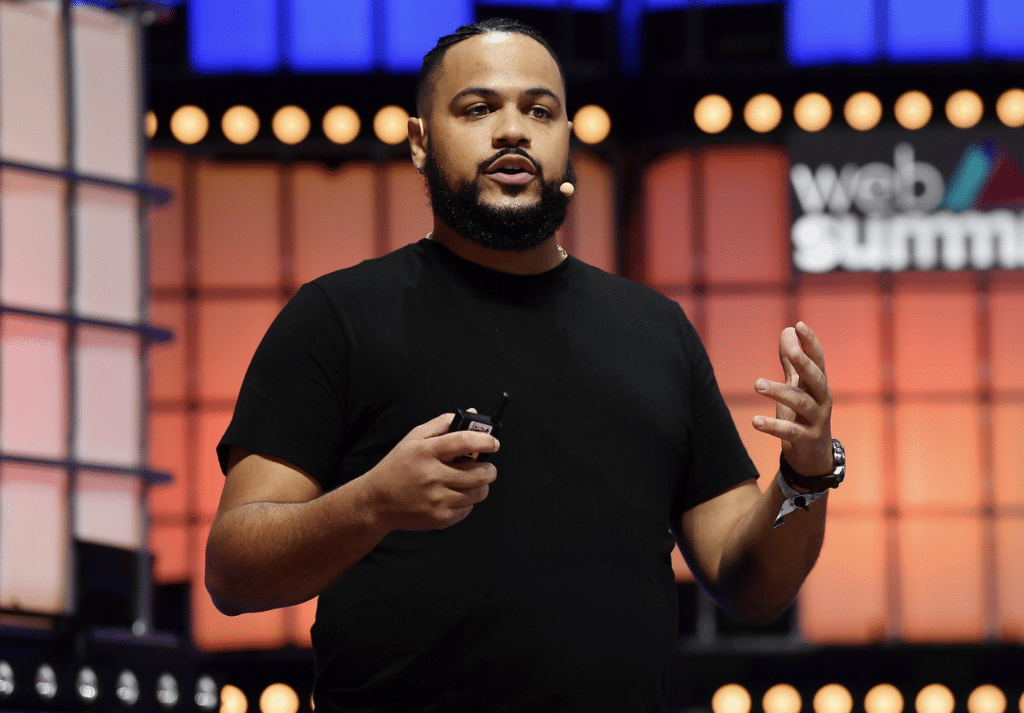Introduction – BlocPower and Donnel Baird
The global challenge of carbon emissions is an urgent issue. With buildings accounting for a significant portion of the world’s energy consumption and associated emissions, energy efficiency has become a crucial focal point in the fight against climate change. At the forefront of this effort is Donnel Baird, the founder of BlocPower, a company revolutionizing energy efficiency in urban communities.
The Life and Vision of Donnel Baird
Born and raised in a low-income community in Brooklyn, Baird experienced first-hand the negative impacts of energy inefficiency. His experiences as a community organizer, coupled with his education at Duke University and Columbia Business School, shaped his vision for a more sustainable and equitable future. This led to the founding of BlocPower, a social enterprise that aims to transform energy consumption in American cities.
BlocPower: An Innovative Solution for Carbon Emission Reduction
BlocPower’s unique business model stands out in the clean energy sector. The company uses data, thermodynamic models, and structured finance to retrofit urban buildings, with a specific focus on insulation. Energy retrofitting is recognized to be a valid way of updating both residential and commercial buildings with the benefit of increasing sustainability and decreasing energy costs.
What BlockPower does, though not uniquely, is to make the process enterprise-scale. Through targeting “blocks” of buildings for retrofitting, the company is able to scale its operations effectively, leading to significant reductions in energy usage and carbon emissions.

Series A Funding – $63 million Raised In 2021
Series A funding is a crucial stage for startups, often signifying their first significant injection of venture capital. It’s typically used to further develop a proven product or service and expand into new markets.
In this case, BlocPower, the Brooklyn-based climate tech startup, has successfully raised a $63 million Series A round. The funds consist of $55 million in debt and $8 million in equity. Debt financing involves borrowing money to be paid back with interest, while equity financing involves selling a portion of the company (shares) in exchange for funding.
The round was led by American Family Insurance Institute for Corporate and Social Impact, AccelR8, and The Goldman Sachs Urban Investment Group. These leading investors have provided the majority of the funding in this round. Additional participation came from investors including Kapor Capital, Elemental Excelerator, CityRock Venture Partners, The Schmidt Family Foundation, and Salesforce Ventures, which indicates a broad base of support from various investment sectors.
To date, BlocPower has raised $68 million from early anchor investors, including notable names such as Kapor Capital, Andreessen Horowitz, MaC Venture Capital, Exelon, New York Ventures of the Empires State Development Corporation, Echoing Green, and The Schmidt Family Foundation. Anchor investors are important because they often invest first, giving confidence to other investors to participate in the funding round.
BlocPower’s Impact on Underserved Communities
BlocPower’s work is primarily centered around low- and moderate-income communities, often overlooked by mainstream clean energy initiatives. By retrofitting buildings in these areas, BlocPower not only reduces carbon emissions but also cuts down on energy costs for residents. Moreover, the demand for retrofitting creates job opportunities, stimulating local economies.
The Environmental Impact of BlocPower
BlocPower’s initiatives directly contribute to carbon emission reduction. By enhancing energy efficiency through insulation, the company significantly reduces the amount of energy required for heating and cooling. This leads to lower greenhouse gas emissions, playing a crucial role in combating climate change.

The Economic Impact of BlocPower
Beyond the environmental impact, BlocPower also stimulates economic development. The demand for retrofits creates new jobs, fostering local economic growth. Furthermore, the company has been successful in attracting investments from those interested in both financial returns and social impact, underscoring its potential as a model for sustainable business.
Recognition and Awards – BlocPower and Donnel Baird
Baird and BlocPower have received numerous awards and recognition for their groundbreaking work. This recognition not only validates their innovative approach but also enhances their visibility, thereby attracting more investment and talent to the clean energy sector.
Competitors
While BlocPower holds a unique position in the market with its focus on urban energy retrofits, it does face competition from other companies in the broader clean energy and energy efficiency sector. Companies like Carbon Lighthouse and Sealed are also noteworthy.
Carbon Lighthouse uses data-driven analysis and energy optimization technology to reduce emissions in commercial buildings, offering a service that parallels BlocPower’s, albeit with a different target market.
Sealed, on the other hand, focuses on home energy efficiency, offering to fund the upfront costs of energy-saving home improvements and recoup its investment via the resulting energy savings. Although they operate in similar domains, each of these companies, including BlocPower, has carved out its own niche within the larger industry, addressing different aspects of the energy efficiency challenge.
Challenges and Criticisms
Like any pioneering venture, BlocPower has faced challenges. Balancing social impact with financial sustainability is a complex task. Some critics question whether BlocPower can maintain its social mission while scaling its operations. However, Baird and his team remain committed to their vision and continue to innovate in order to overcome these challenges.
Conclusion – BlocPower and Donnel Baird
The work of Donnel Baird and BlocPower underscores the importance of energy efficiency, particularly building insulation, in the broader context of carbon emission reduction. Their efforts illuminate a path forward for the clean energy sector, showing how companies can achieve both environmental sustainability and economic development. As we continue to grapple with the climate crisis, their work serves as a beacon of hope and a model to emulate.
